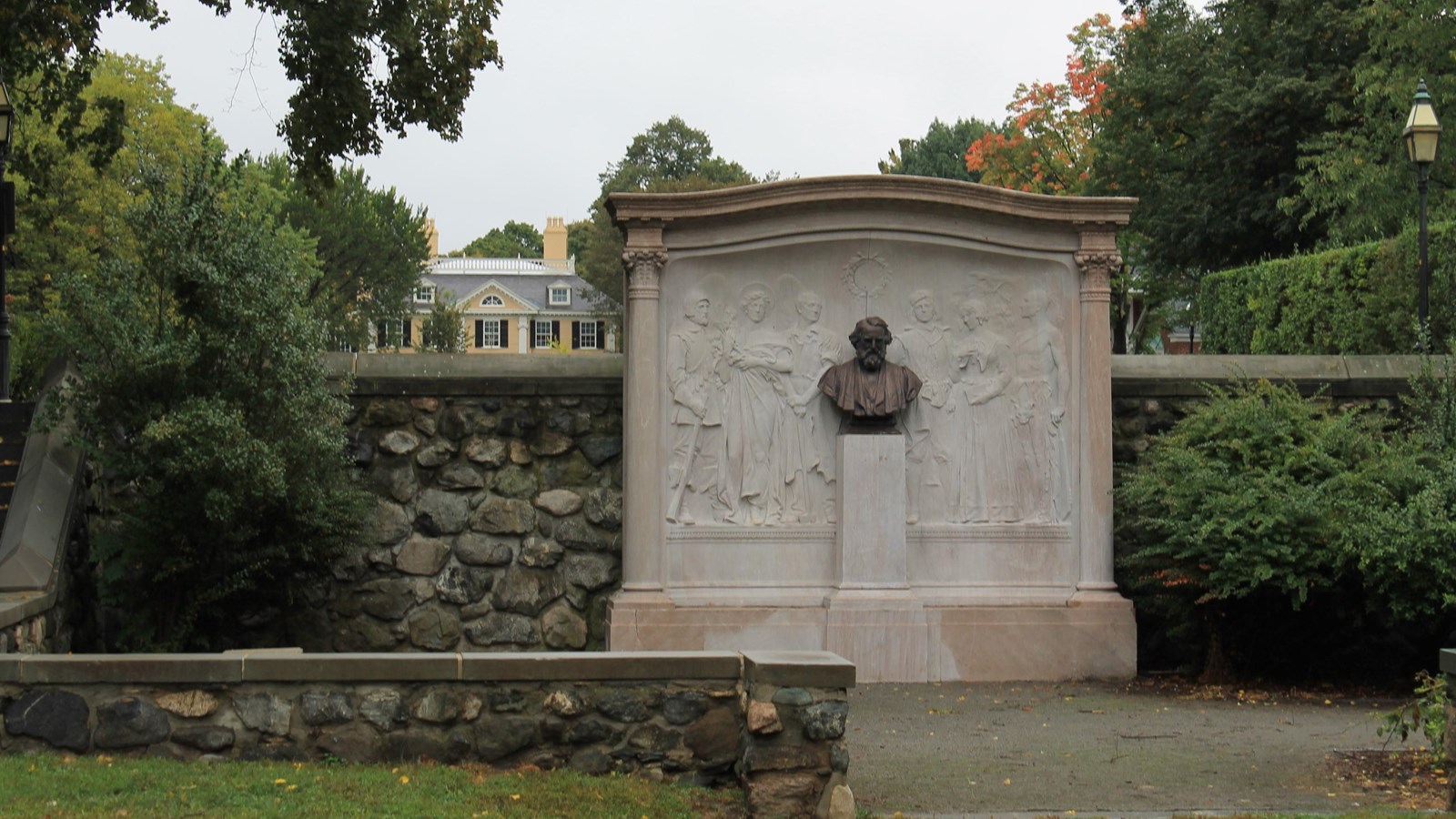Last updated: January 13, 2025
Place
Longfellow Park

NPS Photo
Benches/Seating
Longfellow Park was established on the south side of Brattle Street, across from the poet’s home, as a memorial. Henry Wadsworth Longfellow's children transferred the land to the Longfellow Memorial Association in 1883.
The Longfellow Memorial Association, established in 1882 by friends and colleagues shortly after the poet’s death, raised funds for the design and construction of the park. In 1887, Charles Eliot was commissioned to design its layout. In 1888-89, Walker & Best executed elements of Eliot’s design. In 1908 the Longfellow Memorial Association and the city of Cambridge agreed to transfer the park to the city, which manages it today.
In 1912, much of Walker & Best's work was removed to accomodate a new monument. Sculptor Daniel Chester French was engaged to create the monument, a bas-relief panel with a bust of the poet in front. The bas-relief depicts six figures from Longfellow’s works: Miles Standish, Sandalphon, the Village Blacksmith, the Spanish Student, Evangeline, and Hiawatha. Architect Henry Bacon, with whom French would later design the Lincoln Memorial in Washington, DC, designed the adjacent stone steps and walls. The Longfellow family attended the dedication of the monument in October 1914.
